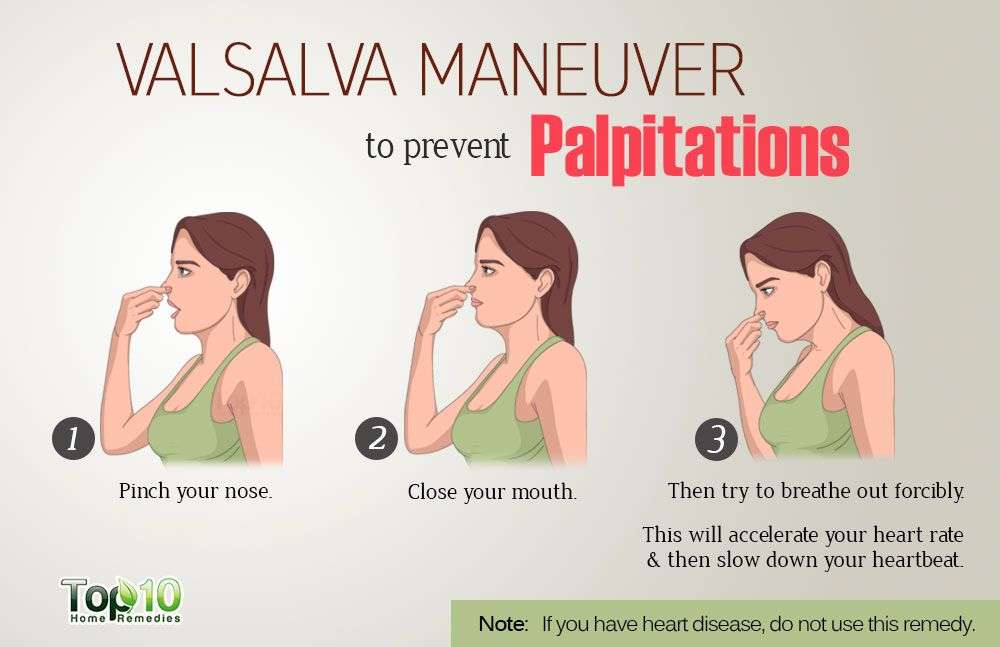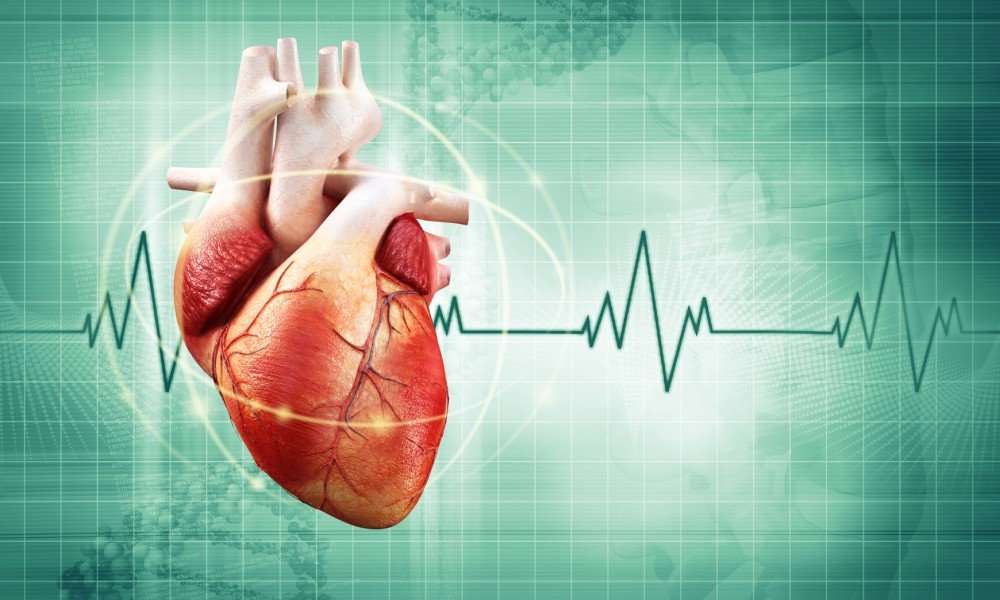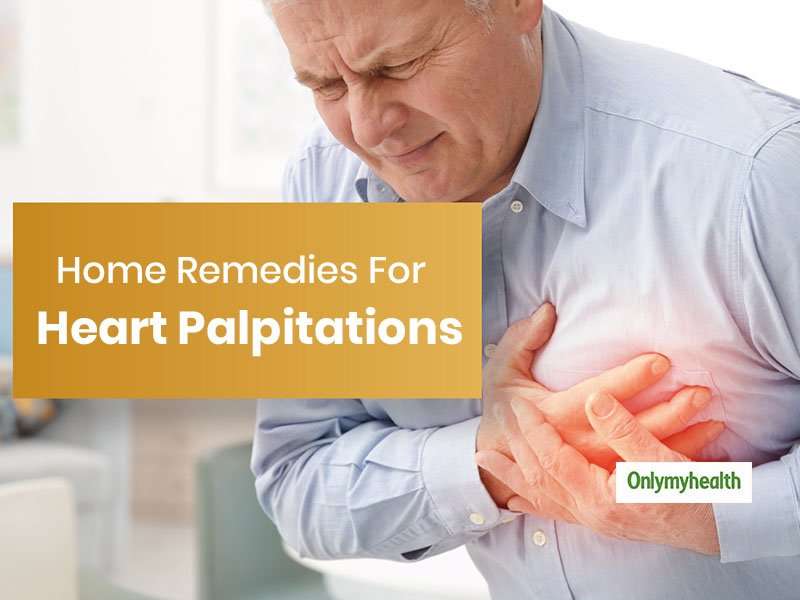Herbal Remedies To Control Heart Rate
Herbal Remedies to Control Heart Rate Are you witnessing any signs of fast heart speed? Is your heart beating slowly? Do you feel any shortness of breath? This could a sign of warning for you. The heart is a delicate organ of our cardiovascular system. Todays life may be modern with technology to serve us but our body has been affected a lot by our careless and lazy attitude towards our health. This has lead to the increasing concerns of this miraculous organ of our body and emergence of heart ailments such as Heart attack, Tachycardia, and Palpitations etc. So in this blog, we are sharing herbal remedies to control heart rate.
What If You Experience Frequent Or Severe Palpitations
Heart palpitations are among the most common heart related symptoms that people report. They are often harmless episodes that come and go, however, on occasion, they are a symptom of an underlying serious heart rhythm disorder.
Begin by consulting your primary care physician. Your doctor can review the food and beverages you consume along with over-the-counter medications you take and determine what may have caused the palpitation. Your doctor may recommend a thorough physical exam focusing on the heart and lungs.
Unless you experience a more severe symptom such as extreme lightheadedness, chest pain, shortness of breath, or loss of consciousness, occasional palpitations should not cause great concern in patients who are otherwise healthy and have no previous heart conditions.
If more serious symptoms occur, however, it would be smart to visit with a cardiologist.
How Are Exercise And Pvcs Related
The relationship between extra beats and exercise is a complicated one. Many patients experience PVCs or palpitations before and after exercise, but not during exercise.
When most patients start to exercise, their own heart rate rises and the PVCs or other extra beats disappear at higher heart rates. After exercise, the body’s natural adrenalin level remains high for a period of time while the heart rate begins to go down during rest. This period of time often permits the extra beats to come back, and sometimes their rate and frequency are higher than before exercise.
If the other symptoms are mild or not present, usually there is not any reason for serious concern. If other symptoms accompany the palpitations such as shortness of breath, chest discomfort, or severe lightheadedness or loss of consciousness, those symptoms with palpitations in any setting are a cause for concern and require further evaluation.
Read Also: Tylenol Heart Palpitations
Heart Palpitations Should Be Evaluated By Your Primary Care Provider
Of course, any recurrent irregular heartbeat warrants a full evaluation by your practitioner, and maybe a visit to a cardiologist, to rule out any abnormalities.
Once they have ruled out any serious underlying condition, women are often told that their symptoms are due to stress or hormone fluctuations. They may be offered prescription drugs. Women tell us that this feels like being dropped with no explanation or suggestion for relief when the doctors cant find anything wrong with them!
Dont Miss: How Does Heart Disease Affect The Skeletal System
Causes Of Heart Palpitations

Although there are several causes for heart palpitations, certain traits, conditions or habits may raise your risk for the condition. These are known as risk factors and include:
Non-modifiable risk factors: These factors are irreversible and cannot be changed. The more of these risk factors you have, the greater your chance of developing heart palpitations:
- Pregnancy
Modifiable risk factors: These factors can be modified, treated or controlled through medications or lifestyle changes.
- Excessive amounts of alcohol consumption over the years.
- Excessive amount of caffeine or other stimulants.
- Extreme emotional stress.
- Extreme physical exertion
- Long history of cigarette smoking and/or drug use
- Dehydration: when you use or lose more fluid than you take in, and your body doesnt have enough water and other fluids to carry out its normal functions.
- Certain cold and cough mediations .
Other conditions that may contribute to development of heart palpitations:
- Thyroid disease: a condition that is caused by the over or under function of the thyroid gland. The thyroid gland is an essential organ for producing thyroid hormones, which maintains the bodys metabolism.
- Heart surgery
You May Like: Fitbit 2 Heart Rate
Try These Tips To Stop Heart Palpitations:
- Splash cold water on your face, which stimulates a nerve that manages your heart rate.
- Breathe deeply to help your body relax.
- Vigorously move to stop palpitations through exercise.
- Reduce anxiety in whatever way works best for your unique needs.
- Close your eyes, then use your hands to gently press on your eyeballs.
- Try the Valsalva maneuver: pinch your nostrils closed, then try to blow air through the nose with the nostrils sealed.
- Drink water if the palpitations are associated with dehydration.
- Restore electrolyte balance by eating foods high in calcium, potassium, magnesium, and sodium.
How To Tell The Difference
How can you tell if youâre having AFib or an anxiety attack? Itâs a good question. Studies show that stress and anxiety can worsen symptoms of AFib, but more research is needed to find out if people with anxiety and depression are at greater risk for developing it. Research also shows that people with AFib are more likely to get depression or anxiety because the condition affects your quality of life.
Recommended Reading: What Are The Early Signs Of Congestive Heart Failure
How To Control Your Anxiety During Heart Palpitations
Its always important to first get checked out by a doctor. Heart health issues are nothing to leave to chance. But its also important to remember that after your doctor has told you that you have a healthy heart, its common to continue to fear that the doctor missed something . Anxiety causes worst case scenario thinking, and so doctors visits may not always be sufficient to calm the mind but they are necessary and constitute a step in the right direction.
If youre suffering from heart palpitations, consider the following tips to prevent that palpitation developing into a panic attack:
One thing to notice, however, is that none of these are going to stop palpitations from occurring if you already have anxiety. Remember that focusing on your heart too much can in fact trigger or exacerbate palpitations. Although palpitations in and of themselves are generally harmless, the best way to address this issue is to commit to a formal anxiety reduction strategy. By lowering your anxiety levels, youre reducing the overall likelihood of experiencing palpitations.
Was this article helpful?
- No
List Of Things You Can Do To Prevent Heart Palpitations
Knowing what to do when you have palpitations is great and can be really helpful. But it is even better to prevent them, so you dont have to deal with it at all. At least, if its caused due to anxiety.
1.Be in the Now more Its easier said than done. Especially with anxiety or fear. The emotional field of anxiety is very good at bombarding you with fearful thoughts and images.
Still, theres a lot of tools that can help you experience the Present moment better. For example, you can observe your thoughts. It needs some practice before youre going to get really good at it.
But, it can have an immediate effect on your well-being. It will automatically slow down your thoughts and thus the anxiety that it creates.
Practice this a lot if you want to prevent heart palpitations caused by anxiety. You will see it can be very difficult in the beginning. This is because the unconscious mind will bombard you with thoughts about anxiety.
Dont get discouraged. The more you remain calm as the observer, the more you will get in the Now and the more calm and balanced youre going to feel.
2.Walk in Nature Nature is just great to get some new energy in your mind and body. You know what I mean right? After a long walk in nature, it can feel as if your battery is fully energized again and your mind is totally empty.
I would say, try it out for yourself and let that stress slide-off your shoulders after a long walk in nature.
Your friend and Coach,
Read Also: Can Tylenol Cause Heart Palpitations
Top Herbal Remedies To Control The Heart Rate
Heart plays a vital role in your body by giving you fresh blood and regulating the blood around your body with the help of the network of nerves. Take care of your heart and prevent the heart from getting trapped in any ailments due to abnormal heart beat which can painful in future if not controlled.Nature has some hidden talents in form of herbs which can help you control the heartbeat and keep it normal:
What If Your Heart Races
The normal heart averages between 60 and 100 beats per minute. When your heart beats faster than this, you have a condition called tachycardia.
When your heart races, itâs working too hard. It doesnât have enough time to fill with blood or pump it to the rest of your body. You might have heart palpitations or chest pain. You may also feel dizzy or faint.
Don’t Miss: Apple Watch Heart Rate Monitor Accuracy
Heart Palpitations: Is It Afib Or A Panic Attack
Symptoms of atrial fibrillation and panic attack can overlap, making it hard to know why your heart is racing. Learn how doctors tell the difference.
If your heart starts racing, your mind might, too: Is this a panic attack? Is this a heart problem? Sometimes its hard to tell even for doctors.
The irregular heartbeat known as atrial fibrillation , a physical disorder, shares some symptoms with a panic attack, an emotional problem, said John Day, MD, director of Heart Rhythm Services at Intermountain Medical Center in Salt Lake City. Pounding in your chest, difficulty breathing, chest pain or discomfort, and feeling dizzy or lightheaded are panic attack symptoms that overlap with afib symptoms. Sudden onset is another.
Either could start at any time for any reason, Dr. Day said, about afib and panic attack.
However, not all symptoms are the same, and the differences can help your doctors determine whats causing your heart to race.
How To Prevent Heart Palpitations

As we have discussed, some heart problems that cause heart palpitations may need medical attention, however, there are some cases that can be handled using certain techniques. Some of them include :
- Relaxation techniques: it is not a secret that stress is a major contributor to having heart palpitations. Nevertheless, you can actually handle or manage it by using some relaxation techniques such as meditation, breathing exercises, keeping a journal, doing yoga, spending some time outdoors, exercising or taking some time off work/school, among others.
You May Like: Flonase Chest Pain
Can Iuds Cause Heart Palpatations Or Arrythmia
I had an IUD inserted a few years ago after having my second child. Shortly after, I began having irregular heartbeat and was eventually diagnosed with SVT. After two heart surgeries and nearly two years of medications, I still had the palpatations. However, after having my IUD removed, I noticed the palpatations stopped. I know this may sound crazy, but can IUDs cause heart problems? Have other women had this experience?
You May Like: How Much Can Marijuana Increase A Persons Heart Rate
My Heart Palpitation Story
I started having my first heart palpitations in early high school, probably around my sophomore year or so. This was only shortly before my first panic attack.
Much like anxiety, there are many hidden factors that can contribute to heart palpitations so, to this day its still hard for me to pin down exactly what caused my first few. In all likelihood it was a combination of hormonal changes, teenage social anxiety, and the ridiculous amount of caffeine I drank each day.
Whatever the cause was, I began to occasionally feel a sort of uncomfortable flutter in my chest. Theyd only last a second, and I could only describe the strange feeling as a skipped or irregular heartbeat. They didnt have any direct of obvious trigger, as Id experience these palpitations completely randomly, even while completely relaxed and playing videogames alone in my room. Id later learn that these feelings were harmless, but at the time I had never even heard of a palpitation before.
Naturally, hypochondria kicked in and I assumed these heart flutters must be indicative of a serious heart condition. One day I had a few heart palpitations in a row and it sent me into a panic. This was my first panic attack, and probably the scariest experience of my life. More than a decade later and I still remember how I laid on the couch gasping for air, genuinely believing that I was going to die.
Don’t Miss: Dehydration Increased Heart Rate
Could Heart Palpitations Accompanied By Shortness Of Breath Be Serious
Heart palpitations can certainly be associated with shortness of breath, that is, the two symptoms together without a serious condition being present. That usually indicates that the irregularity of the heart rhythm is significant and may signal the need for a more comprehensive evaluation.
In general, the more serious the symptoms, such as lightheadedness, loss of consciousness, chest pain, shortness of breath, the more seriously one needs to take the problem.
If a patient has known heart disease such as a previous myocardial infarction, congestive heart failure , hypertrophic cardiomyopathy , and others, the symptoms of palpitations will require a thorough evaluation.
When Emergency Services Are Needed For Heart Palpitations
If you are experiencing unusual heart palpitations, have a history of heart disease, or you are unsure why you are having these symptoms, then the best solution is to talk to a doctor for a diagnosis. A medical expert can help in identifying the underlying problem so the right treatment plan can be designed.
During the appointment, your doctor will complete a thorough medical exam and evaluate your medical history. Additionally, questions will be asked about your diet, medications, and lifestyle. It is important that you provide as much information as possible, including the specifics of how often, when, and what circumstances trigger your palpitations.
You May Like: What Are The Early Signs Of Congestive Heart Failure
Telling Your Doctor About Your Palpitation Symptoms
Because palpitations can appear suddenly and pass just as quickly, it can be difficult to get a handle on your specific symptoms. Being aware when heart flutters take place can help your cardiologist narrow down the cause and nature of the issue.
Take note of how the palpitations feel is your heart pounding? Skipping beats? Does your heartbeat feel irregular? Taking your pulse when you feel palpitations can help you verify whether your heart is beating abnormally fast. You should also keep in mind the context and duration. Its not unusual to feel your heart flutter briefly during intense exercise, but if you find the feeling lasts more than a couple minutes at a time, you should talk to a cardiologist.
How You Can Lower Heart Rate From Anxiety
When youre having a panic attack, the Anxiety and Depression Association of America says its common to experience chest pain and palpitations as a response to your heart rate increasing. In fact, a panic attack is often mistaken for a heart attack.
In people with diagnosed anxiety, Isaacson says that the first step is to treat the underlying anxiety, which can be done through cognitive behavioral therapy , medications such as antidepressants, or a combination of the two.
In addition to CBT, several other methods may help manage heart rate and palpitations. Not only can these interventions help lower your heart rate at the moment, but they can also teach you how to manage your anxiety over time, potentially reducing your risk of cardiovascular disease.
Read Also: What Causes Bleeding Around The Heart
The Feeling Of Heart Palpitations Vary From Person To Person But Often Make Your Heart Feel Like It Is:
- Beating in irregular patterns
- Skipping heartbeats
The most common way to describe a heart palpitation is the feeling you get after sprinting up a long flight of stairs. When you reach the top, you are breathing heavy, you can feel your heart pounding, and you might hear the beating in your ears. This sensation usually passes in a few seconds, but it might be a cause for concern if the heart palpations dont go away on their own.
Heart palpitations can occur when you are active or when you are resting. They can be connected to a specific activity or trigger, or the palpitations might happen for no identified reason.
Most people only have palpitations every once in a while. But some patients experience palpitations throughout the day, resulting in discomfort that can feel as strong as a heart attack.
When To See A Doctor

Most palpitations happen infrequently and last just a few seconds. Take note of when they happen because there might be a triggering event, and that could be worth mentioning at your next checkup. Seek medical attention if there is a family history of heart disease, if palpitations happen with increasing frequency, or become more forceful. Get emergency help if the palpitations include:
- Chest pain
- Severe shortness of breath
- Severe dizziness
The heart palpitations could be a sign of anemia, an overactive thyroid gland, or an irregular heartbeat, also called an arrhythmia.
Read Also: What Causes Left Sided Heart Failure
What Are The Treatment Options For Palpitations
For patients who have more serious heart rhythm disorders, an electrophysiologist will perform a number of diagnostic tests to determine the cause of the arrhythmia. Once the disorder is identified, the electrophysiologist has the option to try medications, lifestyle changes, procedures, and implanted devices to correct the problem.
